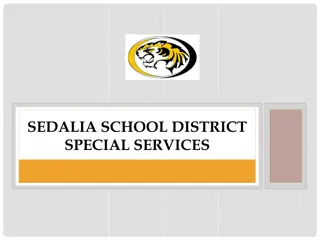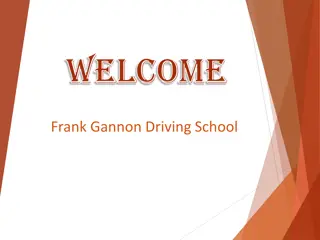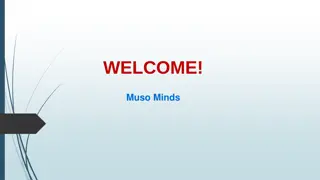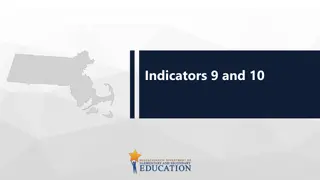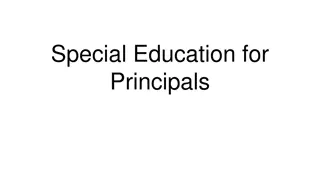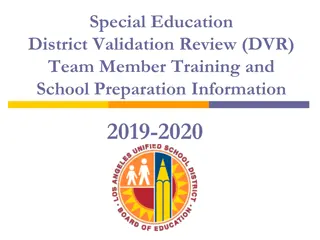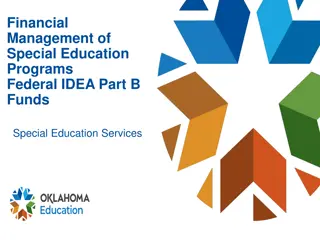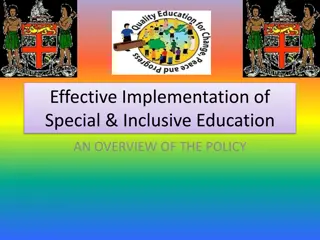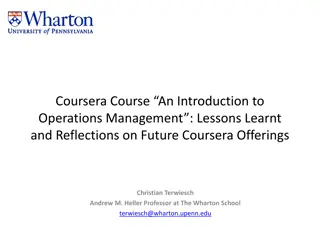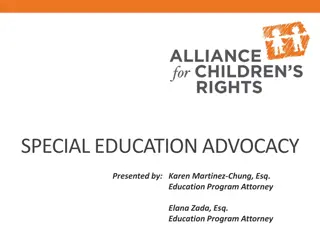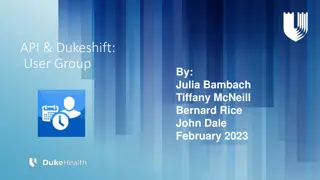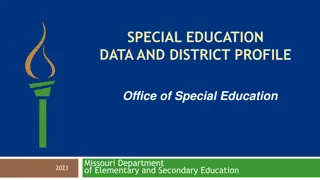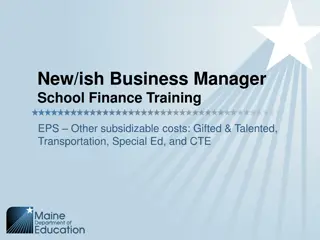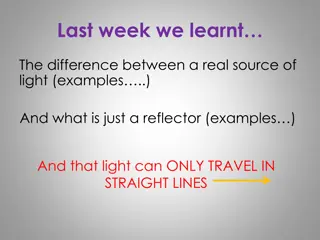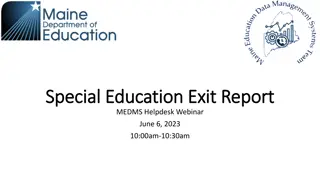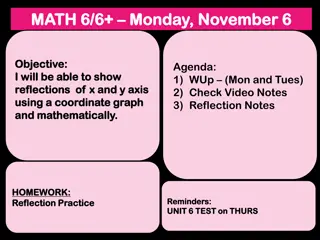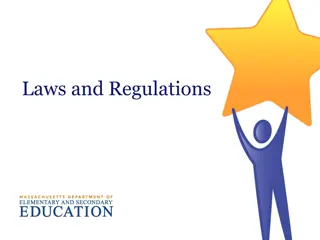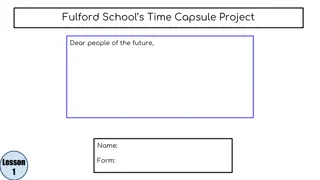Insights from Special Education Journey: Lessons and Reflections
Explore a retrospective journey in special education spanning over 45 years, delving into mentors, defining moments, and invaluable life lessons shared by Marshall Peter, a retired Director from the Center for Appropriate Dispute Resolution in Special Education. Discover crucial insights on family engagement, interagency collaboration, and the profound impact of cultural and linguistic barriers in the realm of special education.
Download Presentation

Please find below an Image/Link to download the presentation.
The content on the website is provided AS IS for your information and personal use only. It may not be sold, licensed, or shared on other websites without obtaining consent from the author. Download presentation by click this link. If you encounter any issues during the download, it is possible that the publisher has removed the file from their server.
E N D
Presentation Transcript
2018 OSEP Project Directors Conference DISCLAIMER: The contents of this presentation were developed by the presenters for the 2018 Project Directors Conference. However, these contents do not necessarily represent the policy of the Department of Education, and you should not assume endorsement by the Federal Government. (Authority: 20 U.S.C. 1221e-3 and 3474)
Forty-Five Years in Special Education: Mentors, Defining Moments, and Life Lessons Marshall Peter, Retired Director Center for Appropriate Dispute Resolution In Special Education (CADRE)
I have seen that in any great undertaking it is not enough for a man (person) to depend simply upon himself. Lone Man (Isna-la-wica), Teton Sioux
The future is either in industrial arts or special education. - Somebody at the NEA in 1973
1973 Enter M.S. Program in Special Education at University of Oregon
Begin at Direction Service Takeaway: Families often feel alone and overwhelmed by the complexity of the service system . A knowledgeable guide, who respected them as experts on their children, could make a significant difference in their lives with a relatively small investment of time. 1976
1984 Support and Education for Families at ORI/Direction Service Counseling Center Takeaway: Families especially valued the time they spent with other families who were having similar experiences. Takeaway: The level of clinical depression and suicidal ideation in mothers of children/youth with severe disabilities significantly exceeded that found in the general population.
Ombudsperson Project Takeaway: Interagency collaboration is much easier to accomplish at the child and family level than the organizational level. Takeaway: Cultural, linguistic and class barriers profoundly impact interaction with schools and other service providers. 1992
1994 Conciliation Project Takeaway: The central element in most conflicts is not feeling heard or respected. Takeaway: Getting each party to unflinchingly declare the other party fully understands their concerns is the turning point in a mediation.
Wraparound and Effective Behavioral Support Takeaway: Interventions acquire power when family/youth voice is honored and reflected and the focus is directed toward strengths. 1997
1998 CADRE Takeaway: The vast majority of special education disagreements can be resolved without the use of adversarial procedures. Takeaway: Almost without exception, the people involved in special education (parents, teachers, administrators, researchers) care deeply about students and are committed to their success.
Guiding Principles for the Future 2. Join support and affinity groups. Don t get isolated. Speak with a single voice. 4. Choose kindness. What would a kind person do? 3. Appreciate good work. Also known as reinforce good behavior. 1. Listen.
2018 OSEP Project Directors Conference DISCLAIMER: The contents of this presentation were developed by the presenters for the 2018 Project Directors Conference. However, these contents do not necessarily represent the policy of the Department of Education, and you should not assume endorsement by the Federal Government. (Authority: 20 U.S.C. 1221e-3 and 3474)







